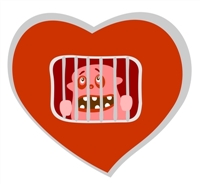Are You in Love with a Controller?

All relationships have their problems, but some can be more difficult to deal with than others. Being in love with a controller can be a difficult situation. People with controlling personalities often smother their partners. They may distance them from their friends and family in an attempt to keep the partners completely to themselves. The control issue may stem from an abandonment problem within the controller or abandonment issues within the passive partner which enables the behavior of the controller.
A good relationship is one that achieves balance and includes honest communication between two partners. If one partner is too controlling, the relationship is thrown out of balance and dissension results. Emotional abuse takes many forms. A healthy relationship is a true partnership. When one partner tries to dominate the relationship, it is no longer a partnership. Left unresolved, control issues can lead to the demise of the relationship or the more passive partner may feel stuck in a toxic situation. It is imperative to learn how to deal with a controlling partner.
Well known relationship expert, Dr. Phil, suggests taking responsibility for your own actions and setting boundaries with your partner. He advises to communicate honestly with your partner about your feelings and to set boundaries during a peaceful time. Never try to set boundaries during an argument. If your partner begins to dominate the discussion, remove yourself from the conversation and make it clear that you will only resume the discussion when both partners are able to talk without domination. When you are able to do this, set boundaries and set consequences for crossing those boundaries.
Nancy J. Wasson, Ph.D., says that each type of behavior has been learned and may have had a useful purpose at one time. But if a relationship is going to be a true partnership, there has to be balance in communication and decision-making. She also suggests that you educate yourself about control issues so that you understand them and are better equipped to handle stressful situations in your relationship.
A relationship is not supposed to be about power or control. Both partners retain a sense of individuality and independence in a healthy relationship. In relationships that suffer from power struggles or control issues, the more passive partner eventually realizes a loss of self. The person then begins to feel resentment and blames the more dominant partner for this sense of loss. The passive partner feels victimized and may feel stuck in the situation, wanting out but not knowing how to escape.
People who are controlling often have abandonment issues. They try to control their partner in order to get closer, thereby avoiding being abandoned. The conflict also works the opposite way. A person who allows himself to be controlled by his partner may also have abandonment issues. By allowing himself to be controlled by his partner, he may feel that she will not abandon him. However, feeling like a victim only leads to resentment in the long run. The passive partner will eventually feel smothered and stifled in his own life.
It is important for the passive partner to speak up and voice his/her concern about the control issues in the relationship. But it is equally important to be a good listener. Often people with control issues do not even realize that they are acting in a controlling manner. They may have developed the behavior as a defense mechanism or to deal with another type of situation earlier in life that served a purpose at that time and it was simply carried forth as part of their personality type. It can be beneficial to make the person aware of their behavior and communicate about how it makes you feel. If you feel smothered by your partner's actions, say so. It is better to tell a person how you honestly feel rather than to suffer in silence, hoping things will change. If you want the situation to change, you will have to speak up. Setting limitations is a necessary factor in conflict resolution and open communication is necessary to set those boundaries.
People who have a healthy, balanced relationship respect the individuality of their partners and encourage each other to live as individuals within the boundaries of a relationship. They consult each other when making decisions and value the opinion of the partner, even if they do not wholeheartedly agree. Take the steps to understand the dynamics of a controlling partner and express your feelings openly and honestly about the domineering behavior. Set boundaries and be patient. Your partner's controlling behavior is not going to change overnight. If the relationship doesn't improve and your partner still continues in her controlling ways, you may want to consider relationship counseling. Both partners must be willing to compromise and accept change if they want a healthy, lasting relationship.